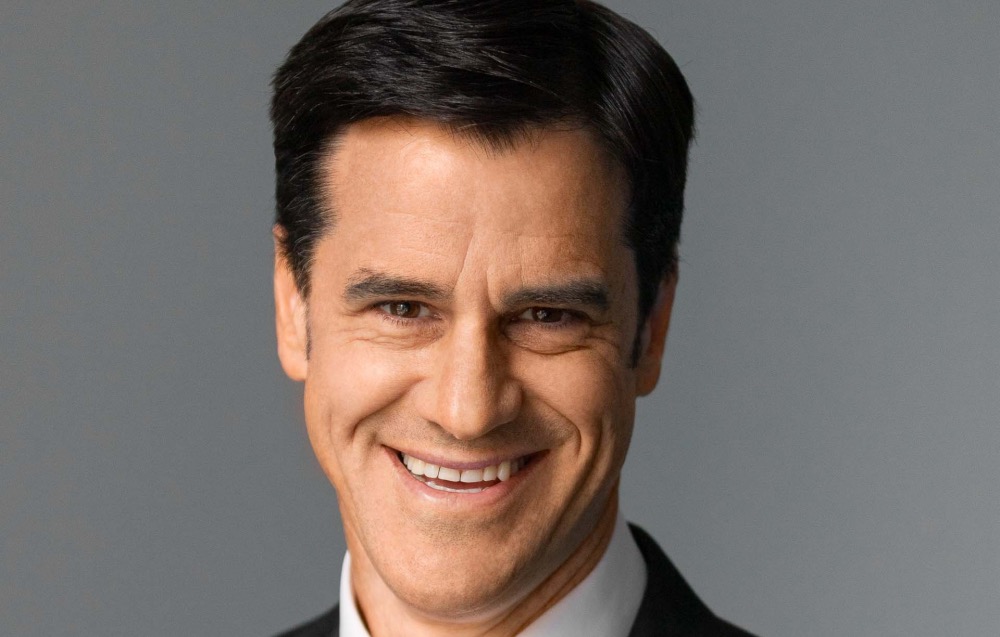Sydney, Australia
Australians are experiencing a “spiritual awakening” during COVID-19, with a recent report showing they have been thinking more about God, praying more often and considering the meaning of life.
At a time when there was “wavering support for religious symbolism in public life” and the church was considered to be “on the decline and culturally outdated”, Australia’s Changing Spiritual Climate report also found more than three-quarters of Australians felt their local church is playing an important role during the pandemic.

Mark McCrindle, founder and principal of McCrindle Research. PICTURE: Courtesy of McCrindle Research.
A third of the population (33 per cent ) aged 18-plus have thought more about God, while three in 10 (28 per cent) have prayed more, the report, released last week found.
Almost half the population aged 18-plus have thought more about the meaning of life (47 per cent) or their own mortality (47 per cent). People are also open to saying ‘yes’ to a personal invitation to attend church, the report said.
Mark McCrindle, founder and principal of McCrindle Research, said the data is worth reflecting on a little longer.
“In this seemingly secular era, where the church is perceived by many commentators to be on the decline and culturally outdated, almost half of all young adults invited to a church service by a friend or family member would very likely attend,” he said.
Australian Bureau of Statistics Census results from 2016 showed the number of people indicating “no religion” was rising fast.
It found Christianity continued to be the most common religion (52 per cent of the population), with Catholicism the largest Christian grouping in Australia (22.6 per cent), but nearly a third (30 per cent) recorded they had no religion in 2016.
“The religious makeup of Australia has changed gradually over the past 50 years. In 1966, Christianity (88 per cent) was the main religion. By 1991, this figure had fallen to 74 per cent, and further to the 2016 figure,” the ABS reported.
“The growing percentage of Australia’s population reporting no religion has been a trend for decades, and is accelerating. Those reporting no religion increased noticeably from 19 per cent in 2006 to 30 per cent in 2016.”
We rely on our readers to fund Sight's work - become a financial supporter today!
For more information, head to our Subscriber's page.
But Sophie Renton, managing director and a social researcher at McCrindle, said in their analysis of the findings, the researchers saw it differently.
“We see it more as a shedding of ‘cultural Christianity’ which is due to the number of Australians who are regularly attending church staying stable, over the time period when the proportion of Australians identifying with Christianity is declining; [then] it’s showing there is largely a stable base and so it’s really, rather than necessarily a rise in secularism…a decline in cultural Christianity,” Renton explained.
“The new data that we have had come out through the [COVID-19] pandemic really highlights to us that there is this renewed sense of meaning and a new spiritual searching among Australians…thinking about meaning of life or thinking about their own mortality.”
Among the more surprising and encouraging data in the report was that churches were being seen to be making a difference and were seen in a positive light within the community.
The findings showed that more than half of Australians (53 per cent) value a strong local community more than they did three years ago, with the local church considered “a key element”.
The report said three in four Australians (76 per cent) agree that the churches in their local area are “making a positive difference to their community”.
“So the pervading sense [among churches] that ‘people think were outdated’ or ‘what we have to offer at our church isn’t needed’ – the community is actually saying they appreciate and value and are seeing the positive impact of churches in their local community during this time,” said Renton.
However, the importance of church in community building (54 per cent) ranked well-below local businesses (84 per cent), local schools (81 per cent) and cafes, shopping centres and dining precincts (79 per cent). Two thirds of respondents said they would likely attend a church service either online (64 per cent) or in-person (67 per cent) if personally invited by a friend or family member.
“Far from religion and spirituality being only for older Australians, Gen Z (45 per cent) are twice as likely as Baby Boomers (21 per cent) to be extremely or very likely to attend an online church service if personally invited by a friend or family member,” the report said.
The McCrindle results were compiled from surveying 1,000 Australians aged 18 and over from 10th to 13th September across all states.





